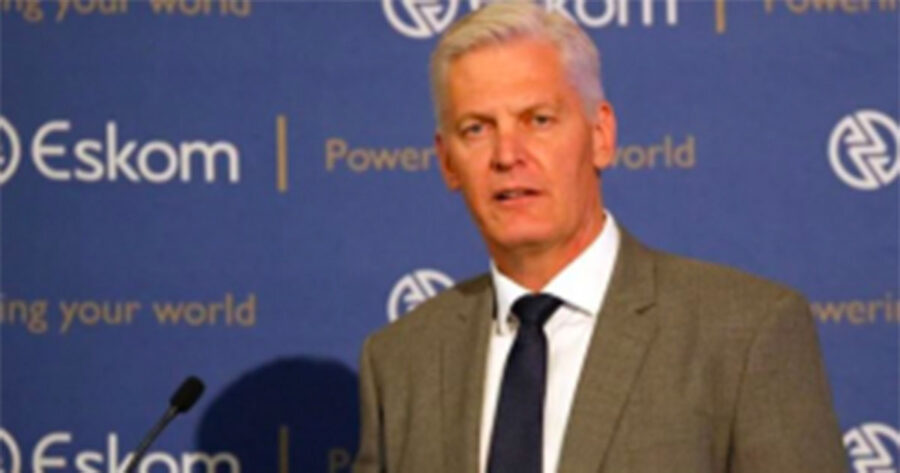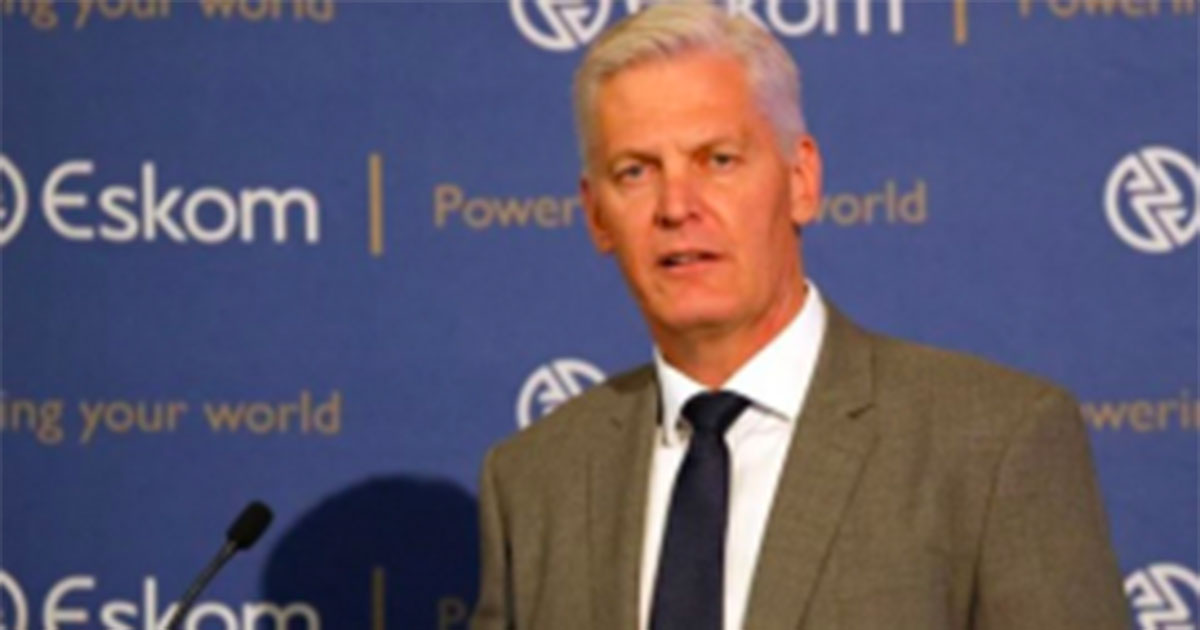
Loadshedding is Preventing ‘Catastrophic Blackout’, Says Eskom’s De Ruyter
Eskom CEO, Andre de Ruyter, says without loadshedding, the power utility would face the “system equivalent of cardiac arrest”. This morning Eskom announced stage 2 load shedding in South Africa from now until Monday. According to De Ruyter, this will help prevent a “catastrophic blackout”. Following breakdowns at power stations, De Ruyter said load shedding […]

Eskom CEO, Andre de Ruyter, says without loadshedding, the power utility would face the “system equivalent of cardiac arrest”. This morning Eskom announced stage 2 load shedding in South Africa from now until Monday. According to De Ruyter, this will help prevent a “catastrophic blackout”.
Following breakdowns at power stations, De Ruyter said load shedding is essential to avoid a total system failure. He said:
“[We] would have the system equivalent of cardiac arrest. We have 50Hz going to zero and then to restart that system will take a period of between two to three weeks which clearly is a catastrophic event that we want to avoid at all costs. Therefore the implementation of load shedding is an effort to prevent this catastrophic blackout.
“So it is extremely unfortunate but it is the prudent step that our system operator takes and in this instance we have had to take this decision to implement Stage 2 load shedding.”
De Ruyter explained that the current bout of load shedding had come after the grid came under severe pressure and emergency generating reserves ran too low.
“We have had some challenges on our generation systems… we have depleted our emergency reserves to the point where we risk not having adequate back up supply in the event of further failures in our generating system,” he said.
Last Friday, during the state of the system media briefing, the utility said that the generating system was performing well.
Barely a week later, Eskom’s Chief Operations Officer, Jan Oberholzer, explained that within hours of that briefing, multiple unexpected breakdowns over a period of 36 hours which led to a point where the energy utility could not meet demand.
“We commenced [this] week with our diesel tank levels very low as well as the dam levels were not full. We then continued to have some breakdowns, we had delays in returning some of the units and up until [Wednesday] we had even more breakdowns.
“[Some] of the units that were planned to return [to service] but didn’t, have put us in this situation now that we do not have sufficient emergency resources. Our generating capacity is not where it’s supposed to be and so we cannot meet the demand of the country,” Oberholzer said.
“It may be that the system will improve and the breakdowns will not be where they are currently. There’s a possibility that we may lift it however, it will depend on the successful return of service of the units as well as whatever breakdowns [may occur].
“The risk [of load shedding] remains if we have a bad patch that we have had the last five or six days, we will definitely find ourselves wanting. But we will do whatever we can to make sure that we do not put the country through the strain of load shedding. We fully understand the mandate we have to the economy of the country,” he said. – SAnews.gov.za
WATCH Loadshedding Power Play on Carte Blanche this Weekend
Loadshedding is back on the schedule this weekend for electricity users who rely on Eskom – a strong argument in favour of becoming self-reliant. After being licenced to set up their own infrastructure, a group of farmers has successfully operated a 320 km power distribution network, dubbed Damplaas Kragbron, for more than 40 years. Now, the system is under threat as the South African Local Government Association (SALGA) has launched a court battle to wrest control of the system and place it in the hands of the local – and failing – municipality. What’s driving the sudden interest in Damplaas, as what’s at stake for the farmers and their thousands of workers if SALGA wins the day?
Producer: Eugene Botha | Presenter: Derek Watts
Watch the show overseas | Watch in SA on DStv Now
